Description
(Neuroprotective and Anti-Inflammatory Peptide for Respiratory, Gut, and Immune Modulation)
Advanced Peptide Therapy for Neuroimmune Balance, Inflammatory Control, and Vascular Health
Vasoactive Intestinal Peptide (VIP) is a multifunctional, naturally occurring neuropeptide that plays a vital role in immune regulation, anti-inflammatory signaling, gut barrier integrity, and vascular tone maintenance. This 6 mg lyophilized peptide, reconstituted into 5 mL of sterile solution, provides a clinically precise tool for addressing multi-system inflammatory syndromes, chronic inflammatory response syndrome (CIRS), long COVID, respiratory inflammation, and gut permeability.
VIP is especially valuable in functional and integrative medicine protocols due to its unique ability to restore immune balance without immunosuppression, reduce cytokine storm activity, and support neuroendocrine and epithelial health across organs.
Product Overview
- Peptide Name: Vasoactive Intestinal Peptide (VIP)
- Strength: 6 mg per vial (lyophilized)
- Reconstitution Volume: 5 mL of bacteriostatic water
- Route of Administration: Intranasal or subcutaneous (per provider discretion)
- Storage (Unreconstituted): Store at room temperature
- Storage (After Reconstitution): Store at 2–8°C (36–46°F); use within 30 days
- Use: Physician-directed peptide therapy for immune, respiratory, gut, and neurological conditions
What Is VIP?
VIP is a 28-amino acid neuropeptide originally isolated from the gut but now known to have systemic effects across the immune, gastrointestinal, pulmonary, cardiovascular, and nervous systems. It is produced by neurons, immune cells, and endocrine tissues, where it acts as both a neurotransmitter and immunomodulator.
VIP has been extensively studied for its roles in:
- Downregulating inflammatory cytokines (e.g., IL-6, TNF-α, IL-1β)
- Protecting blood-brain barrier and gut epithelial integrity
- Improving pulmonary function in inflammatory lung conditions
- Enhancing neuroregeneration and brain anti-inflammatory mechanisms
- Modulating circadian rhythm and neuroendocrine function
Mechanism of Action
VIP binds to VPAC1 and VPAC2 receptors, which are widely distributed in immune cells, the central nervous system, gut, lungs, and endocrine tissues. Through this, it:
- Suppresses pro-inflammatory cytokines and immune overactivation
- Enhances production of regulatory T-cells (Tregs)
- Maintains epithelial barrier integrity in the gut and lungs
- Regulates smooth muscle tone, promoting bronchodilation and vascular stability
- Protects against neuroinflammation and supports cognitive recovery
Its unique ability to both calm immune responses and repair tissue barriers makes it ideal for complex conditions where inflammation and tissue damage co-exist.
Clinical and Functional Applications
1. Chronic Inflammatory Response Syndrome (CIRS)
- Restores balance in patients with mold toxicity, biotoxin illness, or post-infectious immune dysregulation
- VIP has been validated as a late-stage therapy in the Shoemaker Protocol
2. Long COVID and Post-Viral Syndromes
- Calms chronic inflammation in brain, lung, and endothelial tissues
- Supports oxygenation, neurological clarity, and fatigue recovery
3. Respiratory and Pulmonary Inflammation
- Promotes bronchodilation and reduces airway inflammation in asthma, COPD, and post-COVID respiratory dysfunction
- Enhances microcirculation and alveolar repair
4. Gut Barrier and Microbiome Support
- Strengthens tight junction integrity and reduces gut permeability
- May aid in conditions like IBS, SIBO, leaky gut, and inflammatory bowel disease
5. Neuroinflammation and Brain Health
- Reduces cytokine-driven neuroinflammation
- Improves brain fog, fatigue, and cognitive performance
Dosing and Administration
- Typical Intranasal Dose: 50–200 mcg per application, once or twice daily
- Subcutaneous Dose (optional): 100–250 mcg daily or as directed
- Cycle Duration: Often used in 3–6 week intervals, with reassessment
- Reconstitution: Add 5 mL bacteriostatic water; store refrigerated after mixing
All administration should be supervised by a healthcare provider trained in peptide and immune therapies.
Safety and Tolerability
VIP is well tolerated, even in patients with significant inflammatory conditions or sensitivities. It is non-suppressive, non-stimulant, and does not interfere with other immune therapies.
Mild, rare side effects may include:
- Temporary nasal irritation (intranasal use)
- Headache or dizziness
- Mild flushing or warmth after injection
No significant long-term adverse effects have been reported at clinical doses.
Contraindications and Cautions
- Avoid use in pregnant or breastfeeding women unless medically justified
- Use with caution in active cancer cases unless approved by an oncologist
- Patients with severe hypotension or autonomic dysfunction should be monitored closely
Storage & Handling
- Store lyophilized vial at room temperature
- After reconstitution, refrigerate at 2–8°C (36–46°F)
- Use within 30 days of reconstitution
- Protect from light and contamination; use sterile techniques
Why Choose VIP?
- Targets multiple systems—immune, respiratory, gut, and brain
- Validated in clinical biotoxin protocols and post-viral inflammation cases
- Non-immunosuppressive, suitable for long-term or repeated use
- Combines well with BPC-157, Thymosin Alpha-1, NAD+, or cognitive peptides
Summary
Vasoactive Intestinal Peptide (VIP) – 6 mg Vial (5 mL) is a powerful, multi-system peptide that bridges the gap between immune regulation and tissue restoration. Whether used for CIRS, long COVID, respiratory inflammation, or gut-brain axis support, VIP provides a clinically backed, safe, and adaptive therapy for restoring balance, resilience, and vitality across complex chronic conditions.

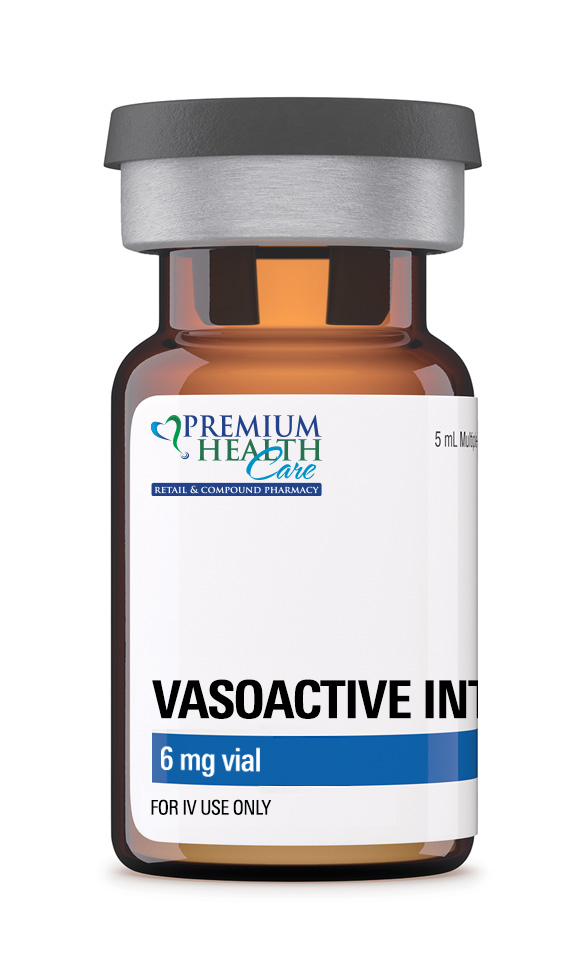
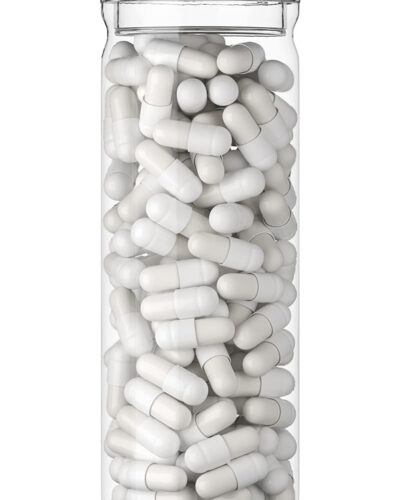
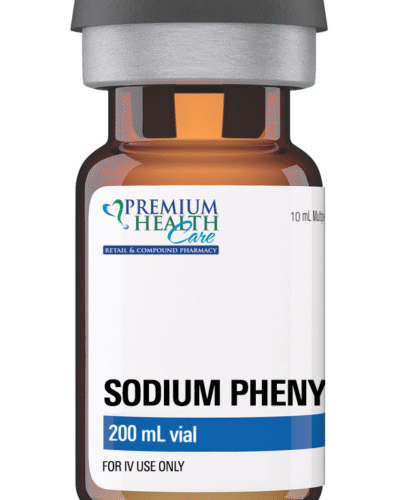
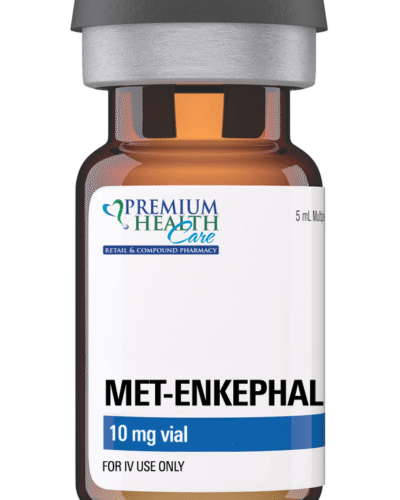
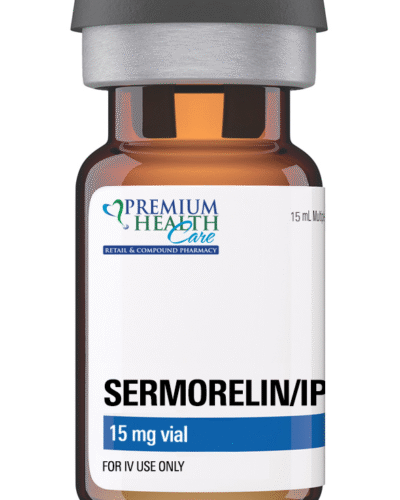
Reviews
There are no reviews yet.